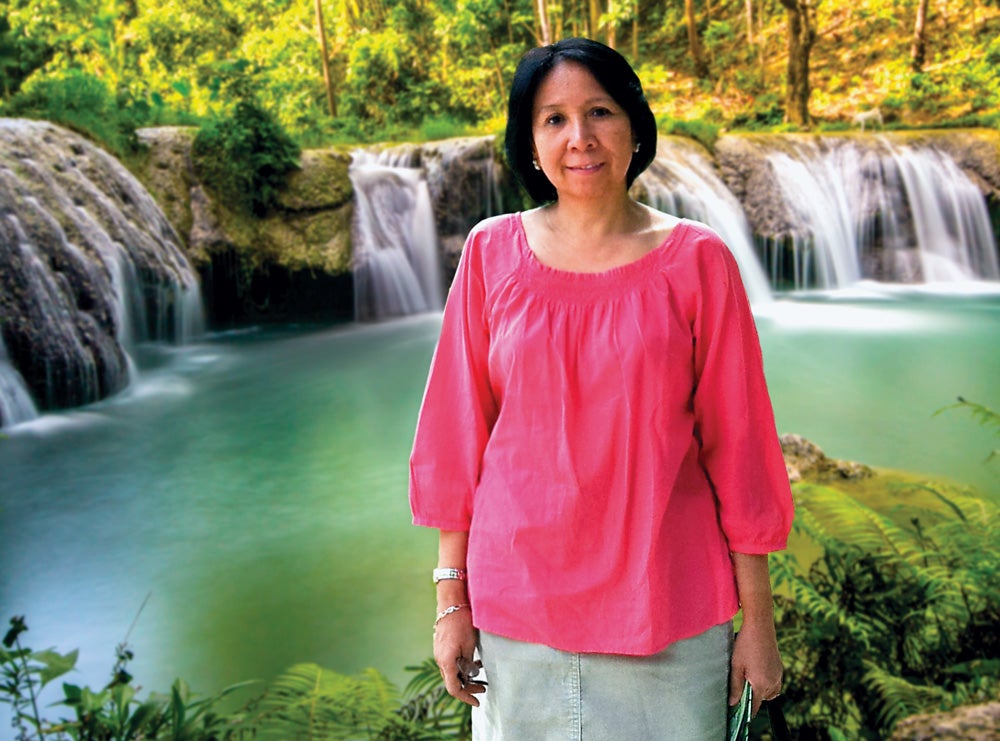Fishing the Philippines

marie antonette juinio-meñez, Ph.D. ’91
No ocean on earth has more biodiversity than that surrounding the archipelago of the Philippines, which is why after she finished her Ph.D. on lobsters, Marie Antonette Juinio-Meñez couldn’t wait to leave URI and go home.
Since then, as a professor and, from 2013 to 2015, as director of the University of the Philippines’ Marine Science Institute, Juinio-Meñez has had one goal: To help Southeast Asia become an epicenter of tropical marine research and education.
“In a developed nation like the United States, you can devote your studies to pure research,” Juinio-Meñez explains. “But in a developing country like the Philippines, you have to apply it—there are immediate needs to provide science inputs to policy, work with government and private partners, and train people in marine biodiversity conservation and resources management. The sea is very much part of sociocultural and economic life here.”
After “serving her turn” as director, Juinio-Meñez is happy to be once more devoting all her time to research and development work. She focuses on ecologically and commercially valuable invertebrates such as the sea cucumber—long overfished because of a huge export market to China, where they’re believed to be aphrodisiacs. And she will have more time for mentoring graduate students and doing outreach. “One of the biggest challenges in the archipelago is that there’s a very shallow pool of people with expertise,” she says. “We must develop the next generation of marine scientists who can respond to our rapidly changing environment.”
By PIPPA JACK
 Home
Home Browse
Browse Close
Close Events
Events Maps
Maps Email
Email Brightspace
Brightspace eCampus
eCampus


